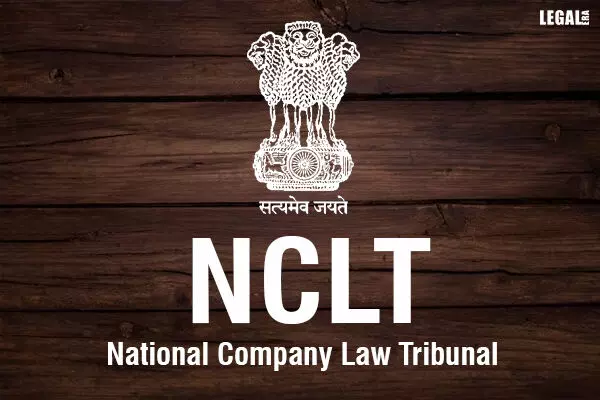- Home
- News
- Articles+
- Aerospace
- AI
- Agriculture
- Alternate Dispute Resolution
- Arbitration & Mediation
- Banking and Finance
- Bankruptcy
- Book Review
- Bribery & Corruption
- Commercial Litigation
- Competition Law
- Conference Reports
- Consumer Products
- Contract
- Corporate Governance
- Corporate Law
- Covid-19
- Cryptocurrency
- Cybersecurity
- Data Protection
- Defence
- Digital Economy
- E-commerce
- Employment Law
- Energy and Natural Resources
- Entertainment and Sports Law
- Environmental Law
- ESG
- FDI
- Food and Beverage
- Gaming
- Health Care
- IBC Diaries
- In Focus
- Inclusion & Diversity
- Insurance Law
- Intellectual Property
- International Law
- IP & Tech Era
- Know the Law
- Labour Laws
- Law & Policy and Regulation
- Litigation
- Litigation Funding
- Manufacturing
- Mergers & Acquisitions
- NFTs
- Privacy
- Private Equity
- Project Finance
- Real Estate
- Risk and Compliance
- Student Corner
- Take On Board
- Tax
- Technology Media and Telecom
- Tributes
- Viewpoint
- Zoom In
- Law Firms
- In-House
- Rankings
- E-Magazine
- Legal Era TV
- Events
- News
- Articles
- Aerospace
- AI
- Agriculture
- Alternate Dispute Resolution
- Arbitration & Mediation
- Banking and Finance
- Bankruptcy
- Book Review
- Bribery & Corruption
- Commercial Litigation
- Competition Law
- Conference Reports
- Consumer Products
- Contract
- Corporate Governance
- Corporate Law
- Covid-19
- Cryptocurrency
- Cybersecurity
- Data Protection
- Defence
- Digital Economy
- E-commerce
- Employment Law
- Energy and Natural Resources
- Entertainment and Sports Law
- Environmental Law
- ESG
- FDI
- Food and Beverage
- Gaming
- Health Care
- IBC Diaries
- In Focus
- Inclusion & Diversity
- Insurance Law
- Intellectual Property
- International Law
- IP & Tech Era
- Know the Law
- Labour Laws
- Law & Policy and Regulation
- Litigation
- Litigation Funding
- Manufacturing
- Mergers & Acquisitions
- NFTs
- Privacy
- Private Equity
- Project Finance
- Real Estate
- Risk and Compliance
- Student Corner
- Take On Board
- Tax
- Technology Media and Telecom
- Tributes
- Viewpoint
- Zoom In
- Law Firms
- In-House
- Rankings
- E-Magazine
- Legal Era TV
- Events
NCLT New Delhi: Exchange Of Debit Notes And Pending MSME Reference Show Plausible Pre-Existing Dispute

NCLT New Delhi: Exchange Of Debit Notes And Pending MSME Reference Show Plausible Pre-Existing Dispute
The National Company Law Tribunal (NCLT) New Delhi bench, comprising Mahendra Khandelwal (Judicial Member) and Dr. Sanjeev Ranjan (Technical Member), has ruled that the exchange of debit notes and an ongoing MSME reference indicate the presence of a plausible pre-existing dispute.
The tribunal held that if a corporate debtor can raise a credible argument about a pre-existing dispute, which is not merely a weak or insubstantial claim, this would be sufficient grounds for the adjudicating authority to reject an application filed under Section 9 of the Insolvency and Bankruptcy Code (IBC).
Mayfair Biotech Private Limited (Applicant or Operational Creditor) filed an application under Section 9 of the Insolvency and Bankruptcy Code, 2016 (IBC), and Rule 6 of the Insolvency and Bankruptcy (Application to Adjudicating Authority) Rules, 2016, seeking to initiate the Corporate Insolvency Resolution Process (CIRP) against Good Value Chemicals Private Limited (Respondent or Corporate Debtor). The claim was based on the corporate debtor's alleged failure to pay an outstanding amount of ₹2,16,90,392/-.
The applicant argued that it had supplied goods and services to the corporate debtor under an agreement, but the corporate debtor delayed payments, resulting in significant arrears. The applicant eventually stopped supplying goods and services due to non-payment and issued multiple reminders, which were ignored by the corporate debtor. A demand notice was served under Section 8 of the IBC, claiming the unpaid debt and interest. In response, the corporate debtor raised the defense of a pre-existing dispute, which the applicant contended was baseless. Additionally, the corporate debtor referenced a separate demand under the Micro, Small, and Medium Enterprises Development Act, 2006 (MSME Act) for a lesser amount, which the applicant disputed as incomplete and misleading.
The NCLT noted that the respondent's defense included a debit note, claiming that the raw materials provided by the operational creditor were defective and substandard. This debit note debited ₹19,98,947/- as compensation for the defective materials, asserting that previous discussions had failed to resolve the issue.
Moreover, the NCLT observed that there was a pending reference under Section 18 of the MSME Act before the Micro and Small Enterprises Facilitation Council in Himachal Pradesh. This reference, initiated on August 13, 2019, sought recovery of ₹1,04,71,053/- from the corporate debtor, predating the demand notice issued on December 21, 2019.
The NCLT referred to Sections 17 and 18(1) of the MSME Act, which allow disputes regarding payments for goods or services to be referred to the Micro and Small Enterprises Facilitation Council, overriding other laws. Additionally, the bench cited the Supreme Court's decision in Mobilox Innovations Private Limited v. Kirusa Software Private Limited, which clarified that if there is plausible contention of a dispute, the adjudicating authority must reject the application under Section 9(5)(2)(d) of the IBC. The Supreme Court emphasized that the authority should reject the application if a factual dispute or ongoing arbitration exists without assessing the dispute's merits.
The NCLT concluded that the existence of the debit note and the pending MSME reference demonstrated a plausible pre-existing dispute, indicating that the disputes related to the agreed services existed before the demand notice was issued.
Consequently, the NCLT ruled that the applicant failed to meet the requirements for initiating the corporate insolvency resolution process under Section 9 of the IBC against the respondent, leading to the rejection of the application.


